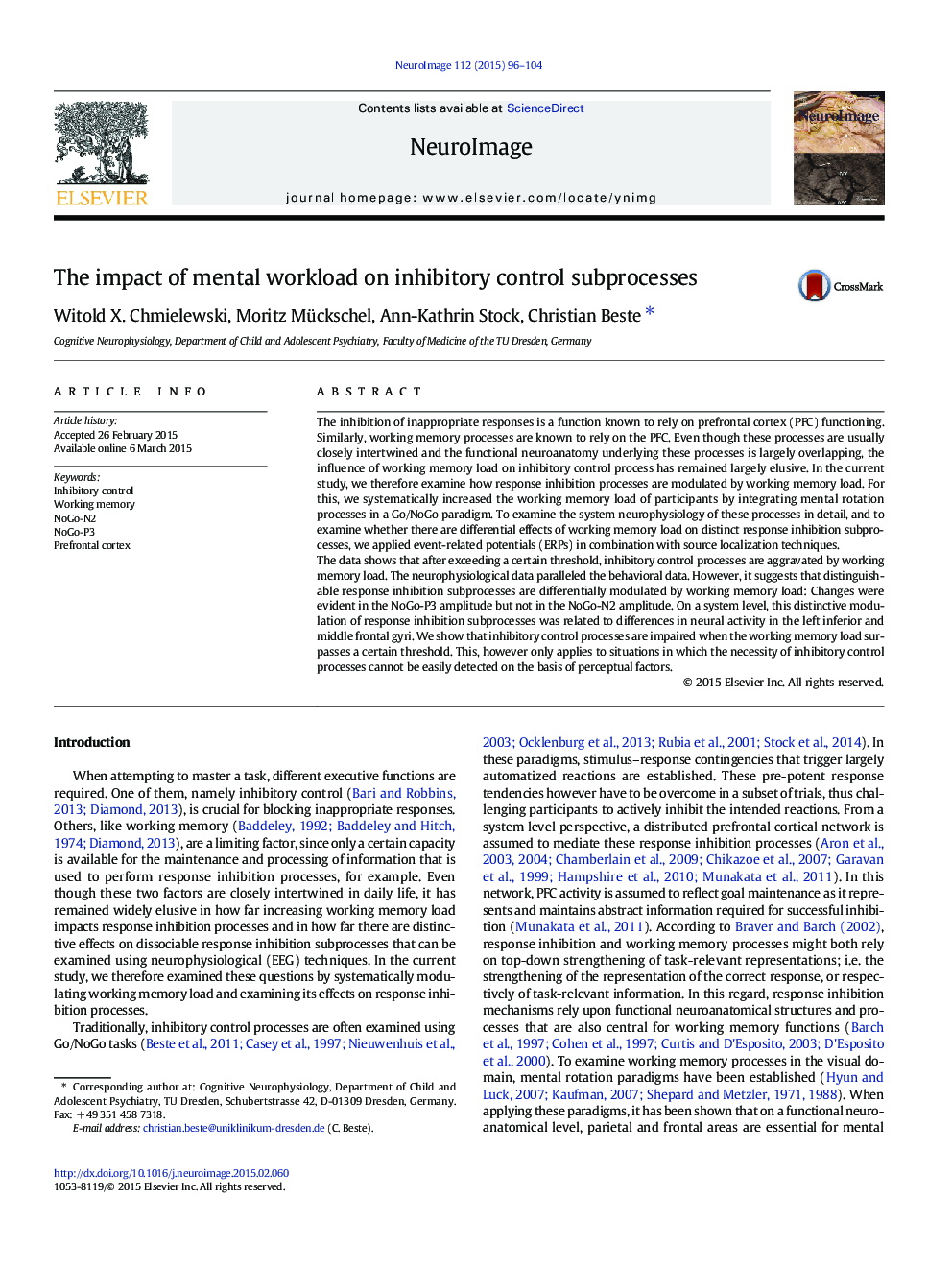| Article ID | Journal | Published Year | Pages | File Type |
|---|---|---|---|---|
| 6024938 | NeuroImage | 2015 | 9 Pages |
â¢The interrelation of working memory load and inhibitory control is examined.â¢Working memory load has specific effects on response inhibition subprocesses.â¢The left middle and inferior frontal areas underlie these modulations.
The inhibition of inappropriate responses is a function known to rely on prefrontal cortex (PFC) functioning. Similarly, working memory processes are known to rely on the PFC. Even though these processes are usually closely intertwined and the functional neuroanatomy underlying these processes is largely overlapping, the influence of working memory load on inhibitory control process has remained largely elusive. In the current study, we therefore examine how response inhibition processes are modulated by working memory load. For this, we systematically increased the working memory load of participants by integrating mental rotation processes in a Go/NoGo paradigm. To examine the system neurophysiology of these processes in detail, and to examine whether there are differential effects of working memory load on distinct response inhibition subprocesses, we applied event-related potentials (ERPs) in combination with source localization techniques.The data shows that after exceeding a certain threshold, inhibitory control processes are aggravated by working memory load. The neurophysiological data paralleled the behavioral data. However, it suggests that distinguishable response inhibition subprocesses are differentially modulated by working memory load: Changes were evident in the NoGo-P3 amplitude but not in the NoGo-N2 amplitude. On a system level, this distinctive modulation of response inhibition subprocesses was related to differences in neural activity in the left inferior and middle frontal gyri. We show that inhibitory control processes are impaired when the working memory load surpasses a certain threshold. This, however only applies to situations in which the necessity of inhibitory control processes cannot be easily detected on the basis of perceptual factors.
